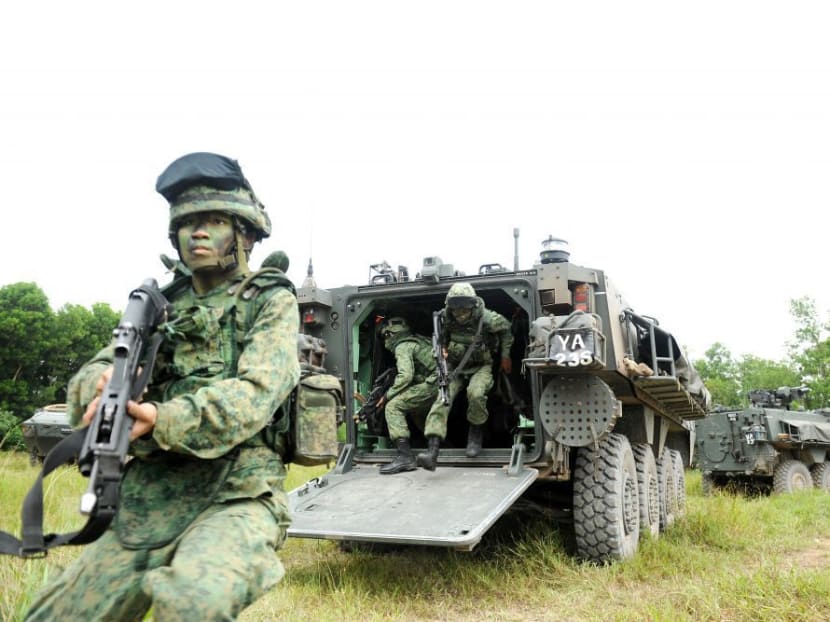1 out of more than 6,000 SAF personnel deployed overseas diagnosed with PTSD
SINGAPORE — In the last two decades, one serviceman out of more than 6,000 Singapore Armed Forces (SAF) personnel deployed overseas was diagnosed with post-traumatic stress disorder (PTSD) after his stint abroad.
SINGAPORE — In the last two decades, one serviceman out of more than 6,000 Singapore Armed Forces (SAF) personnel deployed overseas was diagnosed with post-traumatic stress disorder (PTSD) after his stint abroad.
This was revealed by Senior Minister of State for Defence Maliki Osman in Parliament on Monday (March 19), in response to questions by Workers’ Party Non-constituency Member of Parliament Dennis Tan on the number of SAF personnel suffering from PTSD, and the support rendered to them.
In his speech, Dr Maliki said that the incidence of all psychological disorders among SAF personnel on overseas deployment “is not higher than SAF personnel in general or the incidence among the general population.”
He attributed the “low rate” to factors such as the selection of personnel, pre-deployment training, and mental health support system for servicemen.
“This includes physical preparation, psychological screening, briefs on threat assessments, job descriptions and security procedures as well as avenues available to contact their family members or seek help for personal matters while overseas,” he said.
Replying to media queries, a Mindef spokesman said the incidence and range of psychological disorders among SAF personnel will generally reflect the general population’s characteristics. She added that the incidence of mental health conditions among full-time national servicemen is about 4 per cent, lower than the 7 per cent national incidence of Singaporeans age 18 to 34, as reported in a 2012 study by the Institute of Mental Health.
The type of psychological disorders they suffer from can range from conditions like depression to psychosis, similar to that manifested in the wider Singaporean population, Mindef said.
Dr Maliki told the House that SAF personnel are also able to speak to their family members frequently, even though they may be situated in remote areas such as Iraq and Afghanistan as there are good internet connections.
On their return from overseas deployment, all personnel will undergo an assessment of their psychological well-being for early intervention by counsellors, psychologists and psychiatrists, if necessary.
He noted that compensation for psychiatric or psychological disorders follows that of the overall framework for injuries and disabilities arising from their service.
Affected personnel will also get fully subsidised consultations and treatments at government restructured hospitals, clinics, and community hospitals, “for as long as required, even after his term of service,” added Dr Maliki.
Servicemen who have left the SAF, and are later found to display psychiatric or psychological disorders as a result of their service, are also eligible for the same terms of treatment.
Giving an update on the one serviceman who was diagnosed with PTSD in a separate reply, Mindef said he has been undergoing regular treatments, fully subsidised by the ministry.







